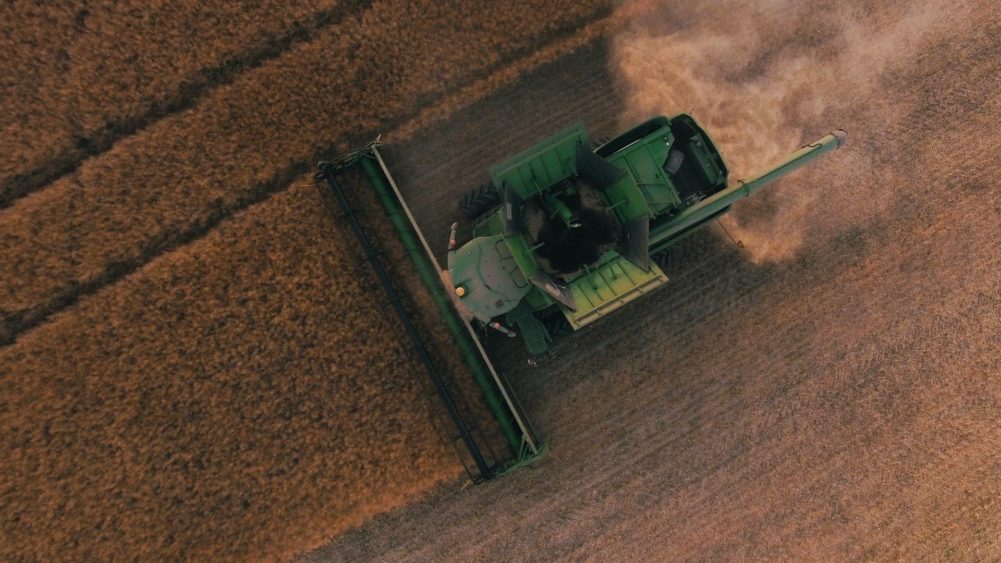Farmers Business Network (FBN), the agribusiness marketplace and network, has raised a $250 million Series F round led by funds and accounts managed by asset management giant BlackRock with participation from new investors including Baron Capital Group, Balyasny Asset Management, Mandi Ventures, Lupa Systems, and Au Bon Pain and Panera Founder Ron Shaich.
Existing funders DBL Partners, Temasek, GV, funds advised by T. Rose Price, Expanding Capital, and Kleiner Perkins also re-upped in this round.
“We started working on the deal in May. Despite tough market conditions, we think our story warrants more growth and capital. We found one of the best groups and syndicates of investors I think this vertical has seen,” FBN CEO Amol Deshpande told AFN. “We talked to very few investors and were only interested in long-term, mission, and impact-oriented investors who are of high quality. We had a pretty modest outreach as a result.”
The deal follows a $175 million Series E from Kleiner Perkins in January 2019. Although Deshpande cannot speak on valuation, Bloomberg estimates that the funding values FBN at roughly $1.75 billion.
In terms of what the syndicate brings to the table, Deshpande noted sustainability and social impact experience at the top of the list. FBN is preparing to make a number of announcements around sustainability partnerships in the coming months, he added. FBN already offers premiums for sustainable practices through programs it maintains in partnership with the likes of Tyson Foods. But chronically low commodity prices and pandemic-related pressures have farmers hunting for new ways to enhance revenue. And while carbon credit markets are a growing area of interest, FBN won’t be launching one of its own.
“We have a different take on a carbon credit market. We want to put the value and the opportunity squarely in the hands of our farmers as opposed to making it about ourselves. We are coming out with something related to sustainability but it will be entirely an opportunity for farmer members as opposed to a business angle for us.”
The new capital will go towards the expansion of its Farmers First FBN Direct range of inputs, which features seed, crop protection, and biologicals. This includes completing hundreds of hires to keep up with growth even though the pandemic has created new challenges in terms of identifying, onboarding, and training new workers, Deshpande says.
It will also invest in its Crop Marketing and Financial Services platform, which aims to provide the most services for farmers to manage risk and obtain financial services like loans and insurance.
FBN is also expanding its footprint and entering new markets. With over 12,000 members operating on 40 million acres of farmland in the US and Canada, FBN announced last month that it is expanding to Australia after acquiring Farmsave, a Perth-based Aussie agtech company. The financial aspects of the deal were not disclosed, but FBN told AFN last week that the Farmsave brand will be discontinued.
Although many agrifoodtech startups would list Covid-19 as their biggest challenge, for FBN, it’s combatting the old guard of agribusiness.
“One challenge we are always facing is collusion and monopolistic practices from the industry. Major ag players continue to try and keep FBN out of the market. They will do anything to keep us out to maintain prices. It’s remarkable to me that commodity prices for corn can be down 30% to 40% and seed prices are barely down at all. They are desperate to keep us out because we will lower prices and they cannot afford that right now.”
In February 2020, Canadian antitrust officials launched a probe into Cargill, Bayer, Corteva, Univar, and BASF to determine whether the major players are intentionally trying to block FBN’s growth in the country. The probe commenced in response to a civil complaint that FBN filed alleging that the big players have engaged in a number of tactics including refusing to supply products to a company that FBN acquired, Yorkton Distributors, after the acquisition, even though it had prior relationships with the major ag companies.
FBN has indeed made waves across an arguably antiquated industry with some of its offerings. Its FBN Procurement platform, for example, aims to provide greater transparency for farmers when it comes to the price of inputs that in part crowdsources input prices that farmers have paid so that farmers can tell whether they have been overpaying compared to their peers. FBN then helps the farmer track down a better deal if he or she is interested.
Ag marketplaces have become a growing segment of agtech as farmers see the appeal of purchasing inputs without markups, but by connecting with other farmers, and obtaining insights into marketing and production data. To date, Deshpande has not seen any entrants put a dent in FBN’s business and describes the proverbial moat it’s built around the business as bigger than most people would know.
“Our biggest competition is incumbency. Existing ag retailers, seed companies, and those who want to keep FBN out of the market.”
And as for the IPO elephant in the room, Deshpande says it won’t likely be happening anytime soon.
“With this fundraise, there is no immediate pressure to do that. Market cycles are so unpredictable. We got through a pandemic, now we have a market cycle that appears up. But our focus is on running the business and it probably will be for a while.”





